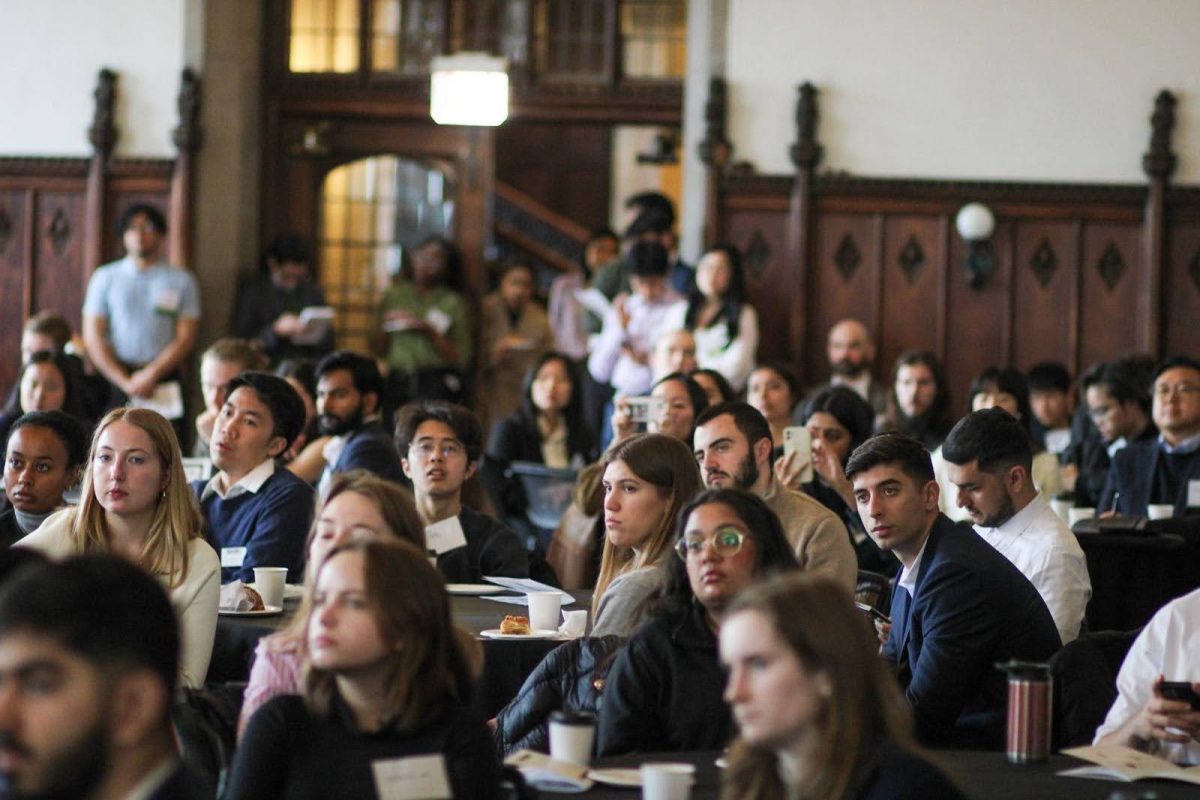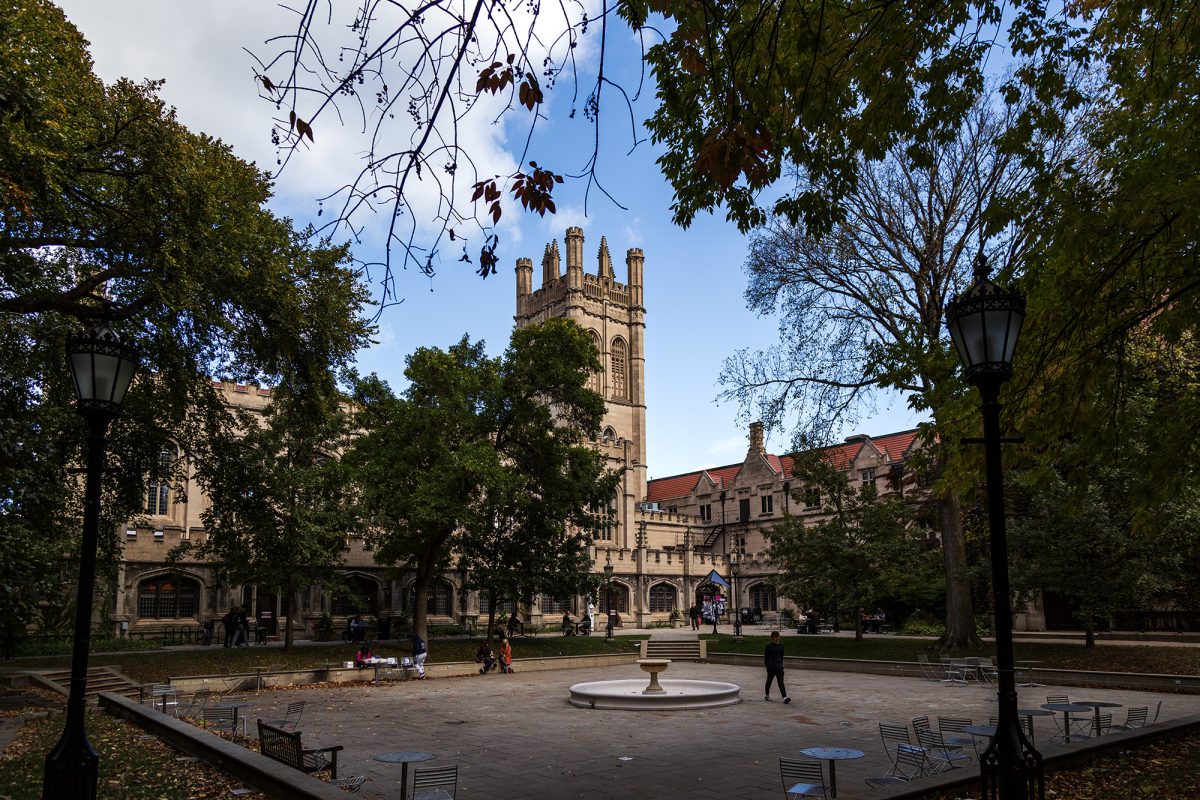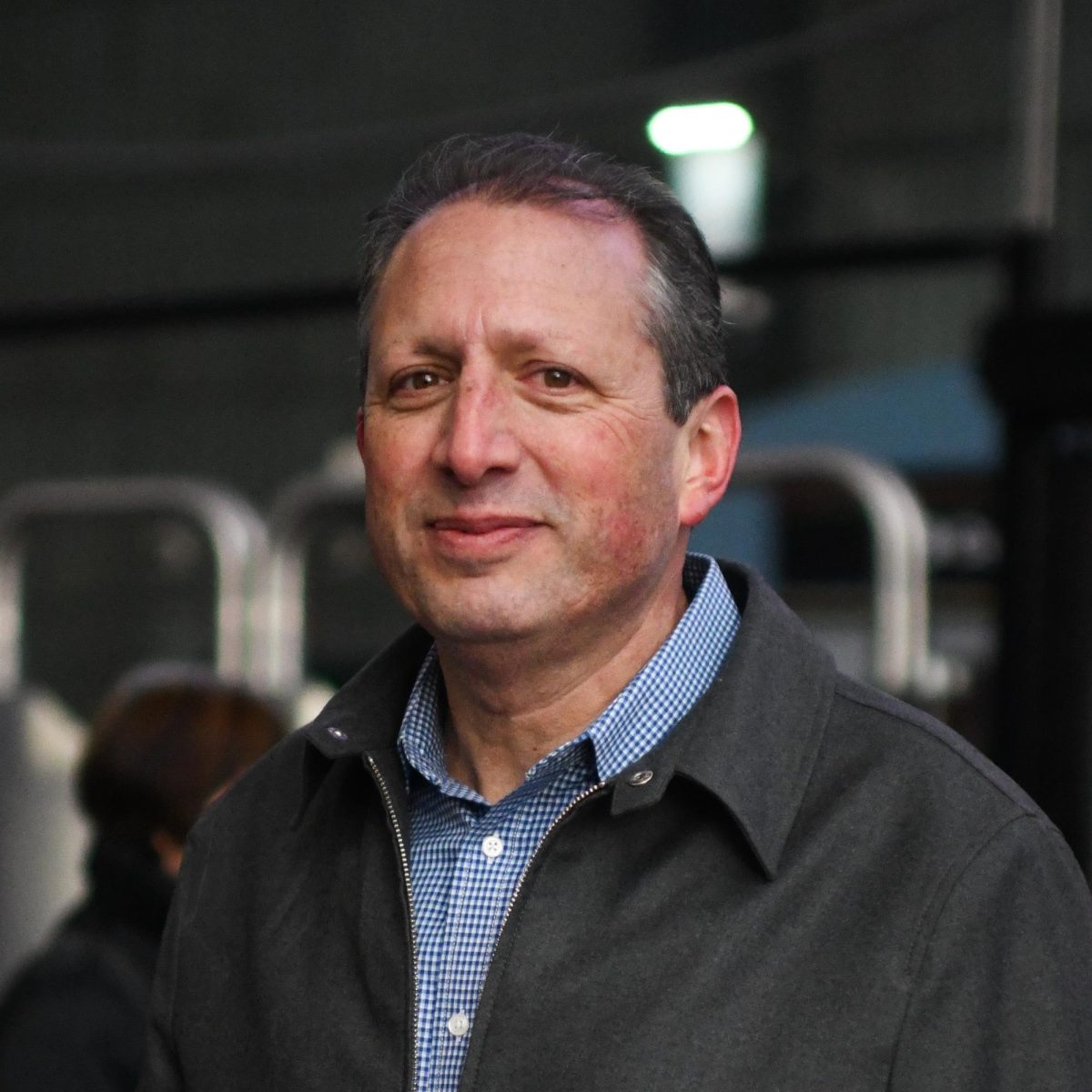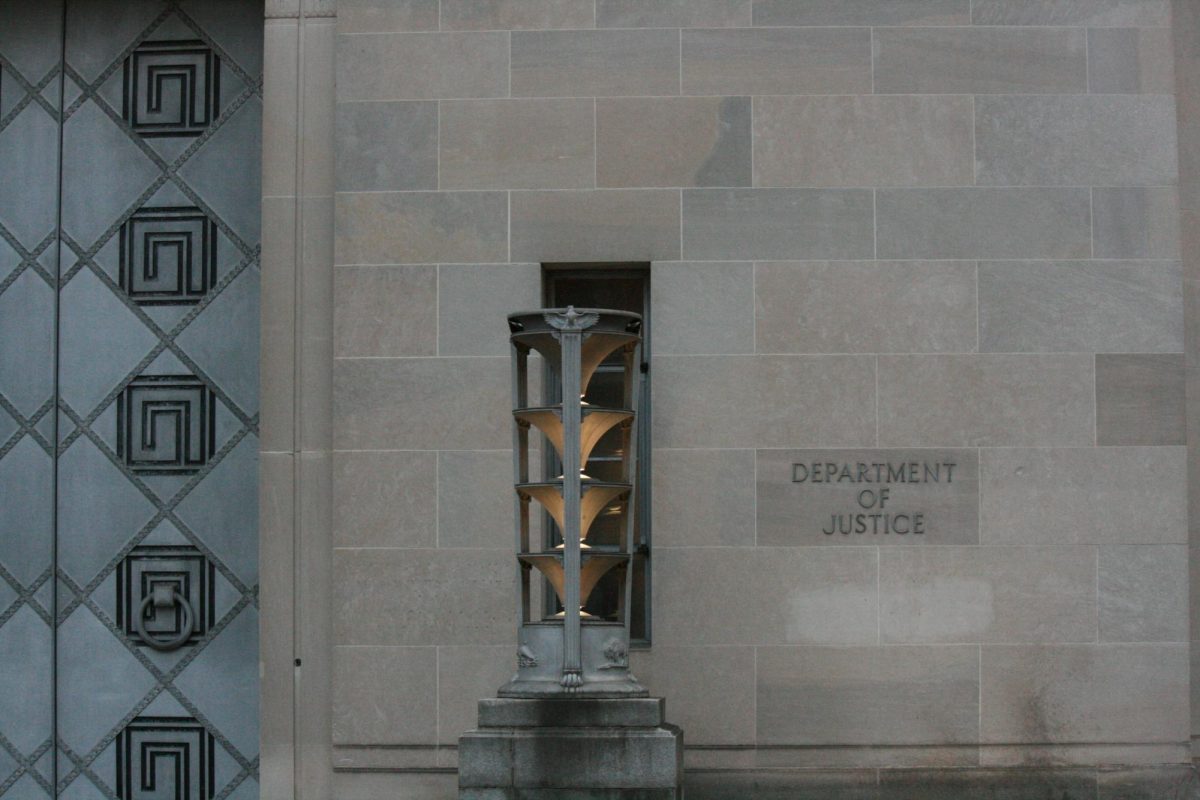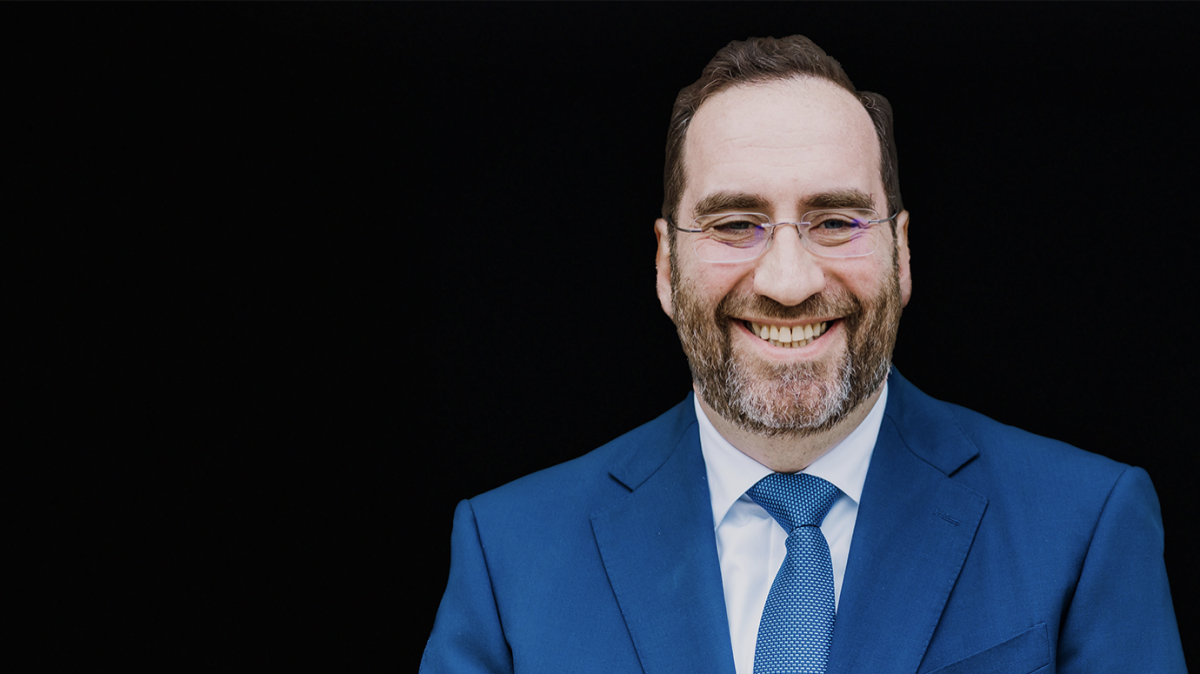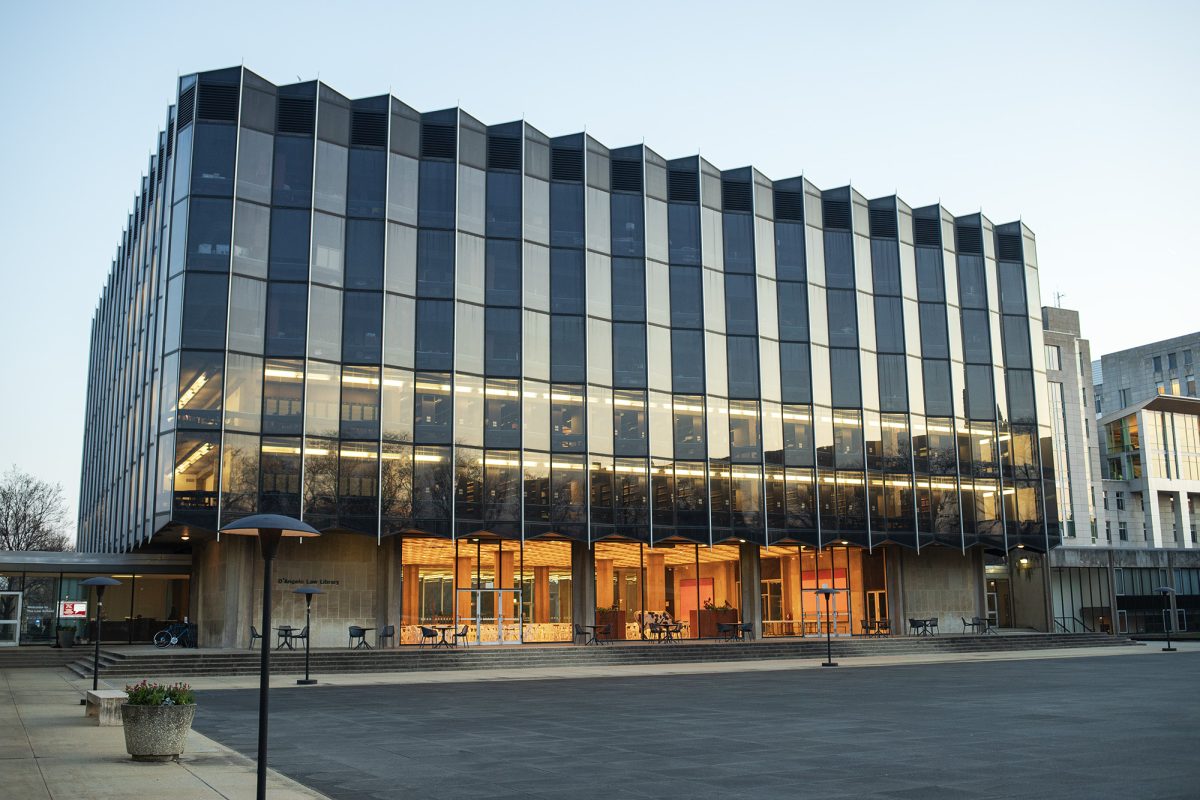The inaugural Chicago Energy Conference, formed as a partnership between the UChicago Energy and Climate Club (ECC) and Northwestern University’s Energy and Sustainability Club, convened students and faculty from both universities on April 5 to engage with leaders across the energy sector.
The conference examined critical issues surrounding the energy transition, with a particular focus on facilitating student engagement in the industry. The Maroon spoke with the event’s four executive directors: UChicago fourth-years Eric Fang, Khwaish Vohra, and Raghav Pardasani and Northwestern fourth-year Quinn Cook.
“For our conference, it really is for the students and by the students,” Vohra said. “From the ground up, this has been something where we worked together to highlight what we as students are interested in learning more about.” Educating students on the multifaceted nature of the energy transition was a core goal of the event. “Energy is at the intersection of solving climate change, improving lives, and driving financial innovation—that’s what drew me in and what makes this space so exciting,” Fang said.
According to Fang, who previously served as a news editor for the Maroon, the conference aimed to break the mold of traditional discussions by incorporating perspectives from a range of disciplines, including law, human rights, finance, and technology.
A central purpose of the event was to expose students to the breadth of career paths within the energy industry. “There are so many opportunities for students interested in grassroots activism but fewer for those looking to explore professional pathways in energy and climate. With ECC, we’re not just organizing a conference—we’re giving students the experience of running a major event and connecting them with industry leaders,” Pardasani said.
“At Northwestern, there are a lot of clubs focused on traditional environmental activism. But there’s a gap when it comes to professional development in energy and sustainability,” Cook added. This conference fills that gap—it’s about showing students that energy is a great place to build a career.”
Building upon the success of similar energy conferences held at the Massachusetts Institute of Technology and Duke University, the Chicago Energy Conference hopes to establish itself as a premier event in the Midwest. “Our vision was to create a Midwestern energy conference, not just a UChicago-specific event. Partnering with Northwestern has helped us expand our reach, bring in a wider breadth of speakers, and reinforce the Midwest’s role in the energy transition,” Vohra said.
Panel topics ranged from decarbonizing buildings to exploring the role of nuclear power in Illinois. “We started with a big question: What policies, investments, and technologies are needed to enable the new energy age? Every panel we created stemmed from that question,” Fang said.
Other discussions addressed the critical materials necessary for battery storage and the future of green hydrogen, providing an overview of the sector’s key challenges and innovations.
“My passion for climate and energy stems from a love for people—you can learn from books and classes, but so much of it comes from engaging with others and hearing their experiences,” Pardasani said. Cook added, “There’s no silver bullet for learning. Don’t be scared to walk up to someone, tell them about your interests, and ask what you should see.”
Keynote speakers at the event included Kate Ringness, former senior adviser to the secretary at the U.S. Department of Energy; Seth Darling, chief science and technology officer for Argonne National Laboratory’s Advanced Energy Technologies directorate; and Jen Zhao, chief operating officer of investment banking at Marathon Capital. Their remarks were accompanied by eight panel discussions held throughout the day.
Ringness opened the day with remarks on the Biden administration’s strategy to grow the energy economy, including its investment incentives, workforce development, and research and development support.
“Overall, investments in U.S. battery and medium manufacturing have quadrupled, and nearly $150 billion has been invested in EV and battery supply chains,” Ringness said. However, she warned that uncertainties, such as a freeze on Department of Energy grants and loans, pose significant risks to the energy economy. She emphasized the importance of community engagement and advocacy in sustaining progress.
Darling addressed the growing complexities of the energy transition, highlighting a central dilemma: how to meet skyrocketing energy demand—driven by AI and electrification—while still reducing emissions and ensuring a resilient energy grid. Despite the rapidly decreasing cost of renewables, he said that fossil fuels continue to dominate the global energy supply.
“Data centers in the U.S. today already use about 5 percent of our electricity. That’s projected to be 10 percent in three years,” Darling said. He framed the energy transition as an approaching systems problem. To meet this challenge, Darling referenced emerging technologies such as SMART energy plasmas, small modular reactors, and advanced catalysts for hydrogen production.
One panel focused on the clean hydrogen market in both domestic and international contexts. “Hydrogen is going to sit with any other fuel and help the economy grow. Our energy needs are not going down—they’re going up,” said Fabrice Bonvoisin, one of the panelists. “There’s going to be room for other fuels and other types of energy to coexist, with batteries, with renewables, with natural gas, nuclear. We’re going to need all of it working together in unison to see this economy grow.” The session emphasized hydrogen’s potential in decarbonizing transportation and shipping while acknowledging cost and infrastructure challenges. Panelists also highlighted the need for international collaboration and the use of AI to improve hydrogen transactions.
Emphasizing the global dimension of the energy transition, organizers incorporated international perspectives into the programming. “A lot of conversations about energy and climate in the U.S. are focused on domestic issues, which are important, but I really wanted to bring in global perspectives. That’s why we included a panel on energy transition in the Global South, with perspectives from Latin America, India, and Africa,” Pardasani explained.
The Global South panel examined major energy transition projects, including a 2022 initiative in El Salvador that Hong Zhang Durandal, a panelist, cited as reducing emissions by 400,000 metric tons of CO2 and saving $400 million. Panelists advocated for policy consistency, community involvement, and economic incentives to drive sustainable transitions, particularly in developing markets such as India.
Looking ahead, the conference directors plan to continue the event annually, alternating between Northwestern University and the University of Chicago as the host campus. They aim to cement the partnership between the two institutions and continue providing students with exposure to energy-related careers.
“This institutional partnership is really unique. It’s not just about bringing UChicago and Northwestern students together—it’s about creating a space where we can all learn by doing,” Cook said. “It allows us to learn from each other, professionally and personally, and broadens our understanding of the energy space,” Pardasani said.



